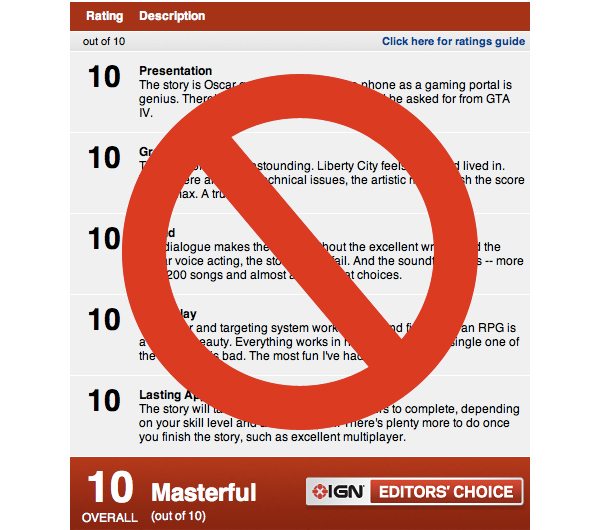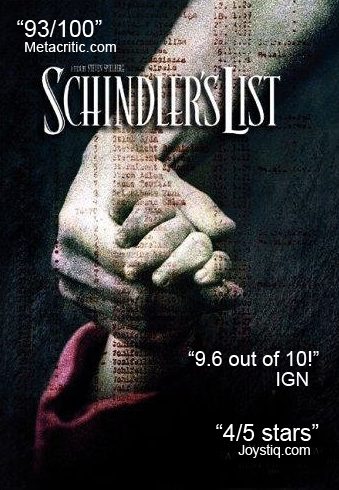This post has not been edited by the GamesBeat staff. Opinions by GamesBeat community writers do not necessarily reflect those of the staff.

My dearest writer, we have a big job ahead of us. Soon enough you will have a paying job and hopefully a career writing about video games at a respectable publication. Once you’re in, it will fall to you to instigate a change, a change that is more than a decade overdue: you must kill your publication’s review score system.
When video games began, they were pieces of entertaining software, mostly consisting of simple shapes, colors and beeps. Today, games are backed by multi-million dollar budgets and built by teams of engineers, designers, developers, writers and art directors. If they have evolved, why haven’t our critiques?
As passionate advocates for video games, we rally in furious defense when Roger Ebert, a critic of an older medium, dismisses game as not art, yet our own review system undermines the very point we’re trying to make. Imagine if critics around the world gave Schindler’s List a bunch of scores and then the studio gave the scores prominence on their posters.

We can’t expect to be taken seriously until we take the first step towards maturity and growth. We must force the consumer to adapt and let go of these archaic and irrelevant review scores. It’s through our own neglect that publishers cling to them now out of fear for their profits. And I would be wrong in saying we should give them nothing in return. No, if we’re going to have a shot at growth we must change and look to others for a better model – perhaps the Hollywood model.
Hollywood places prominence on the written word over any personally concocted scoring system. They put the words on their posters, DVD cases, and in commercials. When all else fails, a score is quoted as an auxiliary, using a widely accepted star system that the average Joe is accustom too. Film buffs look to their favourite critics for recommendations and opinions – not to debate whether Inception should’ve been a 9.5 instead of a 9 in the comments section.
By not placing so much importance on scores, the movie industry has educated their audience.
If review scores disappeared, even temporarily, not only will our industry as a whole benefit from this change, but our lovely review editors will as well. Remember them? They’re the jaded folk that sigh a lot.
Imagine the joy as they take to their next review knowing they can speak about the experience they had and not whether the graphics and sound were up to snuff. They can write about the protagonists jarring soliloquies or how the villain’s personality clashes against the motif established in the game’s final act. Inherently, they will know the reader can no longer skim to the score and ignore their words. No longer will a commenter rebuke them for giving the game .5 less of a score than another website, but will instead disagree with a particular aspect of the review and, moreover, offer a possible counter argument.
Such ideas sound strange and foreign now, but when the day comes where a game’s graphics and HUD are no longer interesting to talk about, let’s hope we have a whole lot more to say.
I challenge you now to make this happen. Email a publication; write your own post; tell a friend – do whatever you can to spread the word: review scores must die.